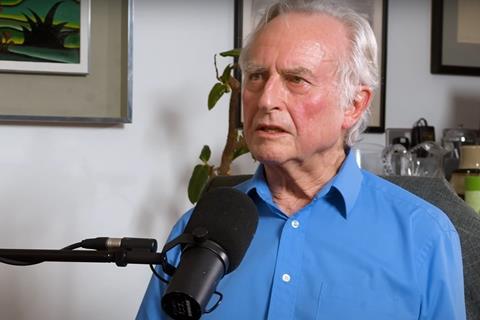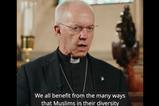The most famous atheist in the world has stated "there are no good arguments" for God’s existence, yet continues to run away from debating a philosopher who appears to have plenty, says Andy Bannister

The New Atheism, the insanely popular movement that in the 2000s made celebrities of many atheists, has all but collapsed.
Christopher Hitchens is dead. Sam Harris has become a figure of fun. Daniel Dennett has retreated behind his beard and his study door. Lesser figures like Ayaan Hirsi Ali now claim they’re Christian.
And then there’s Richard Dawkins.
I’ve always had a soft spot for Dawkins. His book The God Delusion, while riddled with more inaccuracies than a government computer system, was remarkably readable and was the first New Atheist work I read when researching my 2014 rebuttal book, The Atheist Who Didn’t Exist. Dawkins and I almost did a dialogue in Toronto two years later, but he had to pull out due to poor health.
Dawkins’ star has plummeted somewhat of late, not helped by a series of online controversies, including suggesting that any woman pregnant with a Down’s Syndrome child has a moral duty to abort it; he also had his Humanist of the Year Award revoked for his critique of the transgender movement.
The God Delusion was riddled with more inaccuracies than a government computer system
However, Dawkins has recently been trying to reinvent himself, not least by rebranding as more reflective, less pompous, less dismissive, more open to a conversation, such as the one he recorded with the YouTuber Alex O’Connor, also known as “Cosmic Skeptic”. Although a committed atheist, Alex is a balanced interviewer and his conversation with Dawkins was wide-ranging.
About 40 minutes into their conversation, Alex asked Dawkins who was the most formidable debate opponent he’d ever met. Dawkins looked utterly startled and replied: “I don’t think there any” because “there are no good arguments”. This came as a considerable surprise as even many fans of Dawkins suggested at the time that Dawkins’s first debate with his fellow Oxford professor, John Lennox, in 2007, was won by Lennox using rather good arguments.
But Alex then brought up William Lane Craig, a philosopher who is arguably one of the most formidable Christian debaters in the world. WLC as he is affectionately known to his legion of fans, has debated almost every well-known atheist, including all the New Atheists. With one exception: Richard Dawkins.
Bravely running away
In 2011, WLC did a debate tour in the UK and both Christians and atheists tried to organise an encounter with Dawkins, who ducked and weaved and failed to show: in the end, an empty chair was placed on stage to represent the absent Dawkins. I was reminded at the time of the film Monty Python and the Holy Grail, in which the chicken-hearted Sir Robin “bravely ran away”.
At the mention of WLC, Dawkins’s whole demeanour changed and what followed was something akin to a character assassination. Dawkins said he had no time for “professional debaters”, that he had “contempt” for WLC who was a “fundamentalist” and even that “I don’t want to be in the same room as him”. As Alex gently pushed back, Dawkins tried to claim it was all because WLC believes in the historicity of the Old Testament and some of the “evil things” therein. “But you’ve debated lots of other people who believe the same things!” pointed out Alex.
What is going on here? Isn’t there a massive double-standard in claiming “there are no good arguments” but then running away from debating a philosopher who appears (from his successful debate track record) to have plenty?
Morality
One belief of Dawkins that he consistently avoids having challenged is his frequent use of the word “evil”, which popped up again in his conversation with Alex. People like WLC who believe that, say, the killing of the Canaanites in the Old Testament really happened and can be justified theologically, are “evil”. But in a purely material world, where precisely is Richard getting these moral categories from? Aren’t we all, on Dawkins’s view of the world, just genetic puppets dancing to our DNA? It was, in part, the inability of atheism to account for morality that led an older Oxford atheist, C.S. Lewis, to abandon decades of scepticism and follow Christ.
Christians don’t need to be afraid of arguments: contra Dawkins, there are many excellent arguments for Christianity. There are also some good arguments for atheism - I just happen to think that the Christian case is far stronger. But we don’t show the power of our arguments by running away: I’m still hoping that one day William Lane Craig and “Brave Sir Richard” may yet have a proper debate.





































3 Readers' comments